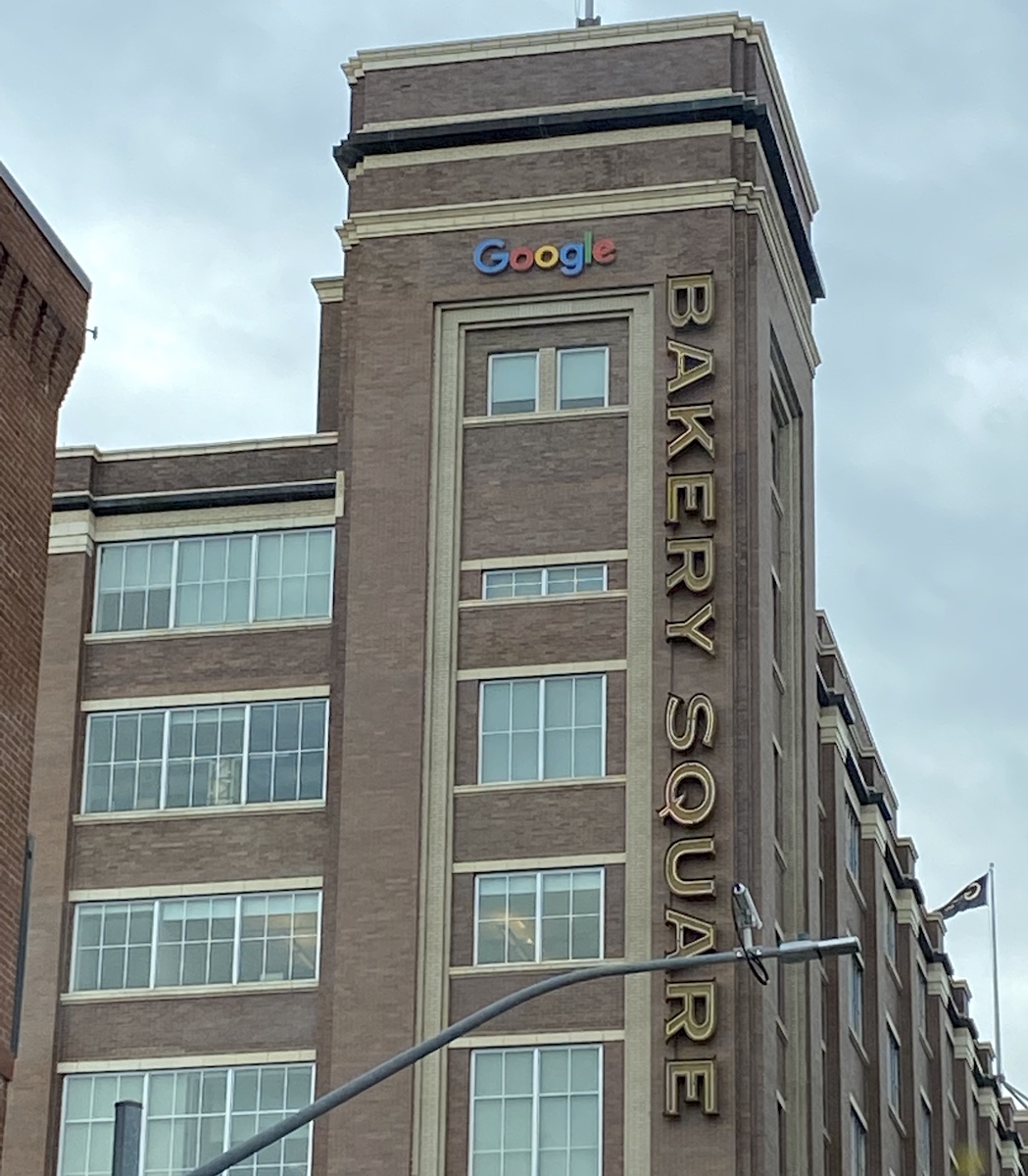As Technical.ly first examined in July 2020, large tech companies are at home in Pittsburgh. But the foundation for that growth had been laid over decades. A prominent turning point was marked when Google came to the city, opening an office within Carnegie Mellon University in 2006 that was helmed by a professor it hired from the institution. The company grew that to 150 local employees that led it to Bakery Square in 2011.
Whether or not its presence is “good” for the city depends on who you ask. Do large tech companies’ presence help the city rise in prominence as a tech hub, and attract more highly paid professionals with it? Are they a boon or a hindrance to local technologists looking for work, and startups looking to grow? Do they have an outsized impact on the cultural fabric of the city, a historically working class steel town? Can all of the above be true?
When Technical.ly asked Pittsburgh founders whose companies made the 2023 RealLIST Startups during a recent discussion on the state of local entrepreneurship, the consensus was that Big Tech’s presence in the area is a good thing, at least for technologists.
For one, these companies provide a sort of professional “safety net,” should one ever need to find a new job in the field. Statistically speaking, most startups fail, so Dashcam for your Bike founder and CEO Armin Samii said it’s comforting to know that should the worst happen, places like Google are there.
“It’s very nice to know that there’s a safety net in those big companies — for people in tech, obviously, not for everybody,” Samii said. “But for a software engineer, having Google nearby is a phenomenal safety net because if things go south, and suddenly I need a real income and not a startup income, I know I have that option available.”
Even if you’re not looking at one of these companies as a potential backup, other founders such as Jim Gibbs, CEO and cofounder of Meter Feeder, think their benefit is that they add to the city’s credibility and often succeed in attracting talent to the area.
There is a sense of stability in the startup life as well. I didn’t lay off 12,000 people this year.Jim Gibbs Meter Feeder
“Google hires some great people,” Gibbs said. The company is a “magnet to get people here.”
However, he added that though not every startup succeeds, there are still great options for employment in the local startup world, which offer a different kind of safety net.
“We’re raising the Series As, we’re raising the Series Bs, and we’re able to hire these people away from Google,” Gibbs said, whose own company has taken venture capital in the past year. “I do want to make sure that all of us as entrepreneurs let people know that there is a sense of stability in the startup life as well. I didn’t lay off 12,000 people this year. I don’t know anybody else on this call [who did].” (That’s a nod to Google’s recent mass layoffs, amid several months of mass layoffs at Big Tech companies.)
Not everyone holds these companies in such esteem. In 2018, when city leaders such as former Mayor Bill Peduto and Allegheny County Executive Rich Fitzgerald were courting Amazon, the possibility of the $2 billion investment was a thrill. But some community members feared displacement and chafed against a lack of transparency that they felt plagued the bidding process.
“Our elected officials and business leaders developed their bid for HQ2 in the dark with little to no input from the community,” Brandi Fisher, an organizer with Pittsburgh United, said at the time.
It’s very nice to know that there’s a safety net in those big companies, for people in tech.Armin Samii Dashcam for your Bike
From a technologist’s standpoint, Colin Dean, managing director of software community Code & Supply, told Technical.ly he felt that larger tech companies often encourage insularity. On top of that, due to those companies’ culture and the nature of the interview process, Dean doesn’t believe working at a Big Tech company is always the healthiest option.
“I don’t feel like the ‘always find a job at MANGA’ is a good fallback,” Dean wrote on Technical.ly’s public Slack. (MANGA, aka FAANG or MAMAA, represents the Big Five tech giants: Microsoft, Amazon, Meta, Alphabet and Apple.) “Stereotypically, big tech interviews are fraught with toxic components, poor criteria, unnecessary exercises that don’t select for the traits the company actually wants in employees, and practices that inadvertently exclude groups of people who would improve the culture of the company.”
Additionally, he isn’t convinced that their presence in the area has helped to reduce inequality in the area. Instead, larger companies can be doing more to invest in communities.
“Google’s getting better at this, having just written a big check for Black Tech Nation Ventures,” Dean said, referring to a recent $50,000 grant from the tech giant to the homegrown VC fund. “But it took a very long time for that to happen.”
_
This story is the part of an ongoing reporting series examining the impact of Pittsburgh’s tech scene on the city at large. Do you feel Big Tech companies in the area benefit Pittsburgh? What would you like to see from these companies? Would you ever consider working for Meta or Google, or do you now? Our inbox is always open: pittsburgh@technical.ly.







